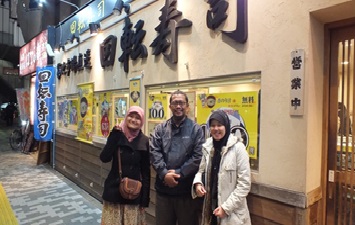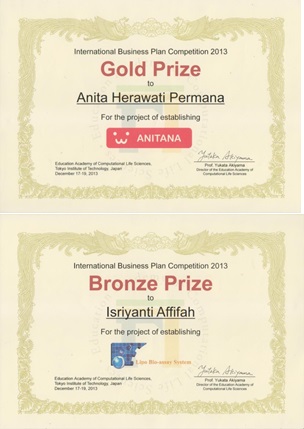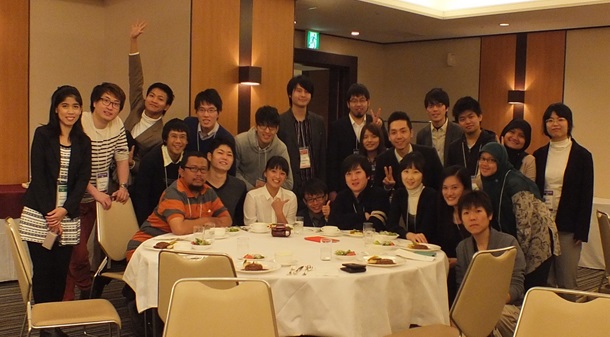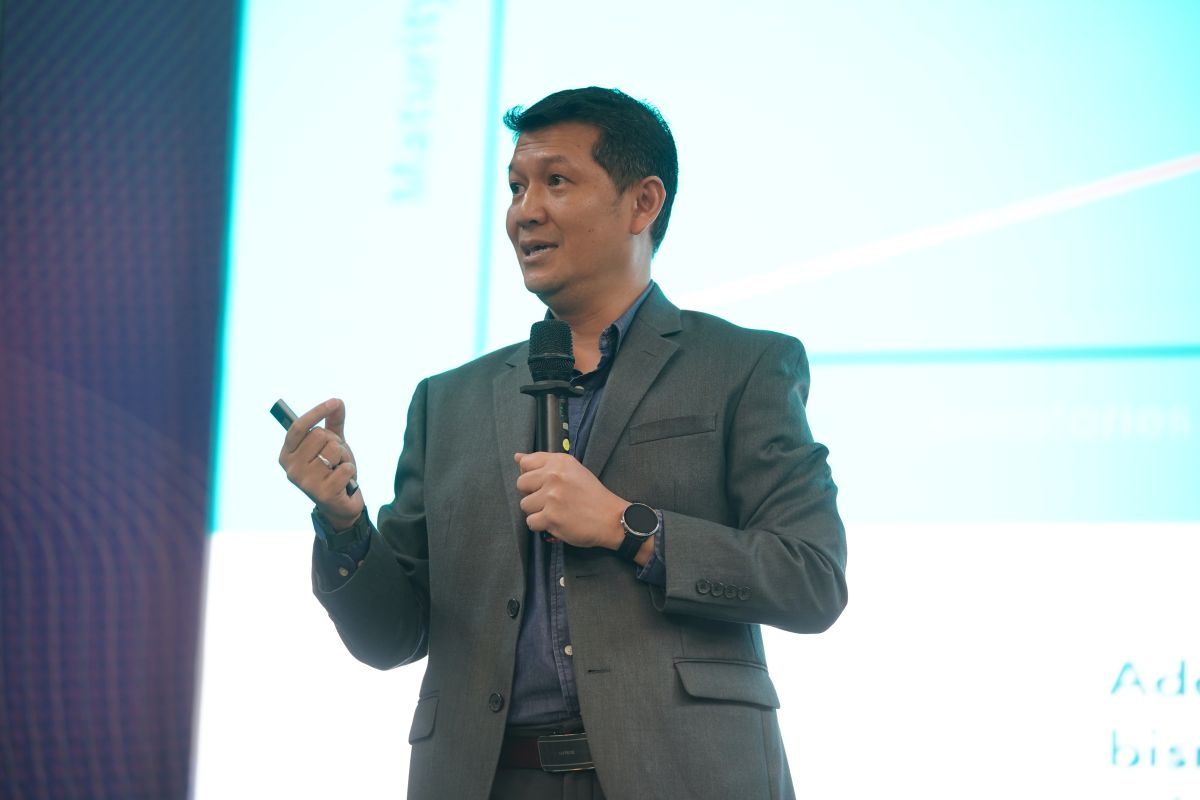ITB Students Won Medals in International Bussiness Plan Competition
By Neli Syahida
Editor Neli Syahida

 BANDUNG, itb.ac.id - Mathematics and Natural Sciences (MIPA) in Higher Education does not only a theory. As well as in Engineering, Mathematics and Natural Sciences is applicable. This was proven through International Bussiness Plan Competition for Life Sciences and Computational Sciences organized by the Academy of Computational Life Sciences (ACLS) under the auspices of Tokyo Institute of Technology (TIT). In this competition, two ITB's students won gold and silver medals. Gold medal was achieved by Anita Herawati Permana (Chemistry PhD program), while the silver medal won by Isriyanti Affifah (Master of Chemistry program). The other ITB's student who also joined this competition is Setyanto Tri Wahyudi (Chemistry PhD program).
BANDUNG, itb.ac.id - Mathematics and Natural Sciences (MIPA) in Higher Education does not only a theory. As well as in Engineering, Mathematics and Natural Sciences is applicable. This was proven through International Bussiness Plan Competition for Life Sciences and Computational Sciences organized by the Academy of Computational Life Sciences (ACLS) under the auspices of Tokyo Institute of Technology (TIT). In this competition, two ITB's students won gold and silver medals. Gold medal was achieved by Anita Herawati Permana (Chemistry PhD program), while the silver medal won by Isriyanti Affifah (Master of Chemistry program). The other ITB's student who also joined this competition is Setyanto Tri Wahyudi (Chemistry PhD program). The competition was held in Tokyo in December 2013 ago. A total of twenty-three participants divided into several groups, where each group work together to create a business idea. The committee gave three patents as a base to develop business ideas. They were a patent on the lipid bilayer production method, method of synthesis of oligonucleotide probes, and walking aid sensor. Teams were given the freedom to took one of these patents, combined some of patents, or combined gived patents to other patents. Participants were given the opportunity to think about the business plan for two days.
 Anita and her team made a plan to develop monitoring system for animals. This idea is further development of walking aid sensors patent. This tool is a combination of motion sensors, temperature sensors, sound sensors, and GPS which was applied to a pet collar. Data collected by the sensors is then processed by certain application that can be installed on a computer or other smart devices. The application can provide information to owner about the movement and the location of their pet, and also give a prediction about pet medical condition.
Anita and her team made a plan to develop monitoring system for animals. This idea is further development of walking aid sensors patent. This tool is a combination of motion sensors, temperature sensors, sound sensors, and GPS which was applied to a pet collar. Data collected by the sensors is then processed by certain application that can be installed on a computer or other smart devices. The application can provide information to owner about the movement and the location of their pet, and also give a prediction about pet medical condition.
 Isriyanti and her team gave an idea based on lipid bilayer patents. Combined with computing system, this team made an idea about USB for detect a disease in plants. For working, part of a suspected diseased plants were prepared first before put in a USB device. The results of the analysis will be displayed on the screen after the USB is connected to a computer that has been equipped with the software and a database of disease. This tool is an easy and simple way for early detection of disease in plants. This idea was based on condition of Asian farmers who still have a problem in recognizing the disease in plants. With the simplicity of this tool, it is expected this obstacles can be solved.
Isriyanti and her team gave an idea based on lipid bilayer patents. Combined with computing system, this team made an idea about USB for detect a disease in plants. For working, part of a suspected diseased plants were prepared first before put in a USB device. The results of the analysis will be displayed on the screen after the USB is connected to a computer that has been equipped with the software and a database of disease. This tool is an easy and simple way for early detection of disease in plants. This idea was based on condition of Asian farmers who still have a problem in recognizing the disease in plants. With the simplicity of this tool, it is expected this obstacles can be solved.
Setyanto and team made a new innovation in the manufacture of liposomes with linear peptide inside for atherosclerosis medicine, ischemia reperfusion injury, and abdominal aortic aneurysm. The advantages of this product were linear peptide is easier to degrade than protein. In addition, a linear peptide also has higher absorption and solubility, compared to cyclic peptides.
Isriyanti admitted that she gained a lot of experience and knowledge after this competition. "In the Department of Mathematics and Natural Sciences, we don't know much about the application of many theory that we get in lecture. But, by following this competition, we knew that science was cool. From it, we can make many sophisticated tools," Isri said. The constraints that she and her teams felt were bringing together various ideas with people from different cultures. Finally, Isriyanti advised to all of ITB students, "We must be confident, because the ability of ITB's students are not inferior compared to foreign students. Just need a little more to think, then we can change the world."



.jpg)

.jpg)
